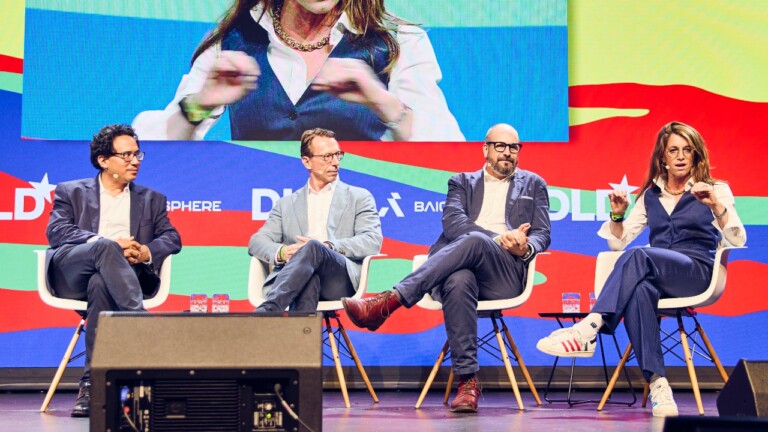From climate change to advancing semiconductor technology, the speed of innovation that AI enables is crucial for staying competitive in the face of global challenges, Hagen Zimer argues in his engaging DLD Future Hub talk.
“We have so many topics out there which need to be solved”, the CEO of Laser Technology at TRUMPF says. “And I believe this is only possible with artificial intelligence, with large volume of data centers and the storage capacity beyond it.”
Zimer’s company, a German machine builder known for its laser technology, is undergoing an AI-driven transformation itself. Internally, TRUMPF uses large language models, such as their customized “BlueGPT”, to empower service engineers. Externally, the company integrates AI into its machines and processes – such as predictive maintenance, condition monitoring, and optimizing productivity.
Successful AI adoption requires clean, integrated data and experimentation, Zimer stresses. “You need to get familiar, then you lose also the fear in doing it. But you should also make sure that you’re not getting stuck in pilots.”



